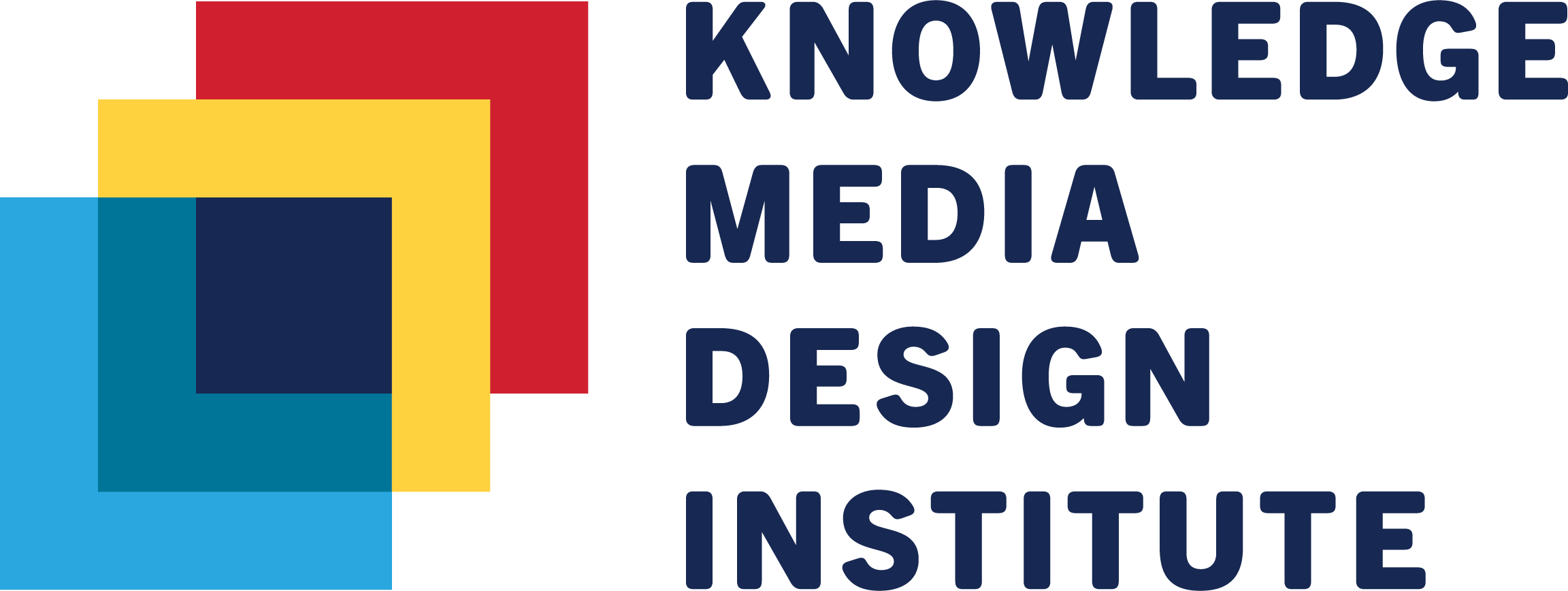KMD Collaborative
Specialization
**As of July 2024, we are pausing admissions to the Collaborative Specialization in Knowledge Media Design. Please check back for further updates.
KMDI is currently involved in teaching through the Knowledge Media Design Collaborative Specialization (KMD CS). The KMD CS addresses the ways media and media technologies shape, and are shaped by, human activity. We design, build, use, evaluate, and critique the media and policies of our networked world. The KMD CS provides graduate students opportunities to collaborate with people from diverse backgrounds on interdisciplinary human-centered projects that explore the interaction between media, technology, design and society. KMD courses allow students to work with experts from across disciplinary boundaries to tackle complex socio-technical issues around the design, dissemination, preservation and interaction with knowledge systems, focusing on hands-on practices. Through experiential learning, students engage in each stage of the design thinking process – brainstorming, prototyping, and evaluation. Projects are geared towards real-world problems and give students opportunities to publish papers, deliver conference presentations, and in some cases, provide the ground work for start-up businesses.
Courses
We offer several courses in Knowledge Media Design, from fundamental concepts to practices in a variety of contexts.
- KMD 1001H Theory and Methods in Knowledge Media Design
(Next offering: Fall 2024). - KMD 1002H Applications in Knowledge Media
(KMD1002H is offered on a bi-yearly basis. The next offering will be in the Winter 2025 term).
- KMD 2002H Technologies for Knowledge Media
- KMD 2004H Knowledge Media, Culture & Society
- KMD 3000H/3001H Readings in Knowledge Media Design
- KMD 4000H Special Topics in KMD
- KMD 2100Y – Completion of KMDI Speaker Series Lectures, (Master’s Level). This course is assigned as Credit/No Credit.
- KMD 2200Y – Completion of KMDI Speaker Series Lectures, (Doctoral Level). This course is assigned as Credit/No Credit.
- Please check this website for the timetables. Students interested in Readings in Knowledge Media Design (KMD3000H/3001H) should contact admin.kmdi@utoronto.ca for further information.
Affiliate Courses
The courses listed below are offered by our collaborating graduate unit and satisfy KMD requirements. These courses may not be offered every year. Courses that are mandatory for a student’s degree from the home graduate unit cannot be counted. Students are responsible for consulting with their home departments to ensure proper completion of degree requirements. Some of the elective courses may require a significant amount of background knowledge and experience. Enrollment in such courses may require the permission of the instructor. For questions and assistance with registration contact admin.kmdi@utoronto.ca.
Architecture, Landscape Architecture, Urban Design, and Visual Studies
LAN 1021H – Visual Communication 1
LAN 1022H – Visual Communication 2
LAN 1031H – History Theory Criticism 1
LAN 1032H – History Theory Criticism 2
URD 1031H – The History of Toronto Urban Form
URD 1041H – Introduction to Urban Design Theory
VIS 1010H – Contemporary Art Since 1960
VIS 1020H – Contemporary Art: Theory and Criticism
VIS 1101H – Paradigmatic Exhibitions: History, Theory, Criticism
Computer Science
CSC 2514H – Human-Computer Interaction
CSC 2526H – Topics in Ubiquitous Computing: Inclusive Computing
CSC 2537H – Information Visualization
CSC 2552H – Topics in Computational Social Science
CSC 2556H – Algorithms for Collective Decision Making
CSC 2720H – Systems Thinking for Global Problems
Curriculum, Teaching and Learning
CTL 1602H – Introduction to Computers in Education
CTL 1608H – Constructive Learning and the Design of Online Learning Environments (Online)
CTL 1609H – Educational Applications of Computer Mediated Communications (Online)
CTL 1926H – Knowledge Media and Learning
CTL 5015H – Social Media and Education
Drama, Theatre and Performance Studies
DRA 3904H – Performing Failure: Critical Theories on Perfection and the Sublime
DRA3908HF Creative Labor and The Science of Awe
DRA3904HS Livestreaming with (DDL)2: Artistic and Professional Explorations of a Digital Media Challenge
Information
INF 1602H – Fundamentals of User Experience NEW
INF 2122H – Digital Preservation and Curation
INF 2169H – User-Centred Information Systems Development
INF 2170H – Information Architecture
INF 2191H – User Interface Design
INF 2192H – Representing UX
INF 2197H – Special Topics in Information Studies: Information in a Disabling Society
INF 2241H – Critical Making
INF 2242H – Studying Information and Knowledge Practices
INF 2243H – Critical Histories of Information and Communication Technologies
INF 2300H – Special Topics: Biodesign, Emerging Technologies, and Social Impact
INF 2303H – Special Topics: Critical Game Studies NEW
INF 2306H – Special Topics in Information Studies: Designing for Knowledge Work
INF 2330H – Information Ethnography
INF 2331H – The Future of the Book
INF 2320H – Remix Culture
Mechanical and Industrial Engineering
MIE 1401H – Human Factors Engineering
MIE 1402H – Experimental Methods in Human Factors Research
Medical Science
MSC 1002H – Overview of Methods in Practices & Contexts
MSC 1003H – Rhetoric of Science
Museum Studies
MSL 2000H – Curatorial Practice
MSL 2325H – Museums and New Media Practice
MSL 2330H – Interpretation and Meaning-Making in Cultural Institutions
MSL 2500H – Constructing and Curating Digital Heritage
Religion
RLG 2023H – Religion, Media, and Culture

